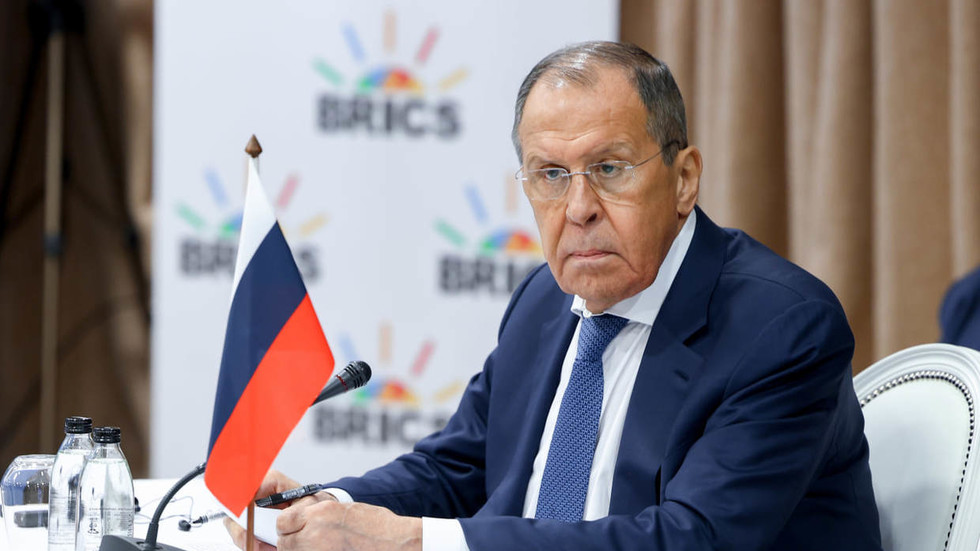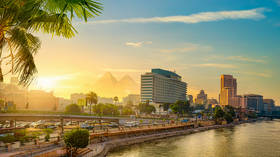
Sergey Lavrov has commented on several Arab countries applying to the bloc

File photo: Russian FM Sergey Lavrov at the BRICS ministerial meeting in Cape Town, South Africa, June 1, 2023. © Russian Foreign Ministry via Sputnik
The multipolar foundations of BRICS would be enriched by the admission of several Arab nations, but the bloc has yet to decide on their applications, Russian Foreign Minister Sergey Lavrov told RT on Friday.
Algeria, Egypt, Saudi Arabia and the United Arab Emirates (UAE) have all expressed interest in greater ties with the group of largest developing countries, composed of Brazil, Russia, India, China and South Africa.
“They are all very strong countries,” Lavrov said in an interview on the sidelines of the St. Petersburg International Economic Forum (SPIEF). “And they are all leaders, to some extent, in the Arab and Islamic world. This would undoubtedly enrich BRICS.”
The Russian diplomat said the contribution of these new members would be “obvious” and mean that BRICS would get representation from one of the world’s major civilizations. “No doubt, this will benefit the multipolar foundations of the bloc that evolved naturally, objectively,” he added.

Read more
Because BRICS makes decisions by consensus, the bloc has established a procedure of coordinating member states’ position on expansion, Lavrov revealed. Expert groups are currently working on reports that will be presented at the August summit in South Africa, at which point the bloc will make its move accordingly.
Russia supports the expansion of BRICS, Lavrov said, but understands very well that applications for membership can carry certain complications.
“It’s a very sensitive issue, of course, because the country’s reputation is at stake here, too. If a state applies to join and gets no answer, this won’t look good,” the diplomat told RT.
The four Arab nations are among the dozen countries that have applied for BRICS membership so far. Other notable candidates include Argentina and Iran. Interest in the bloc has grown over the past year and a half, as the West has leveraged its control over international financial systems to wage widespread economic warfare against Russia.




